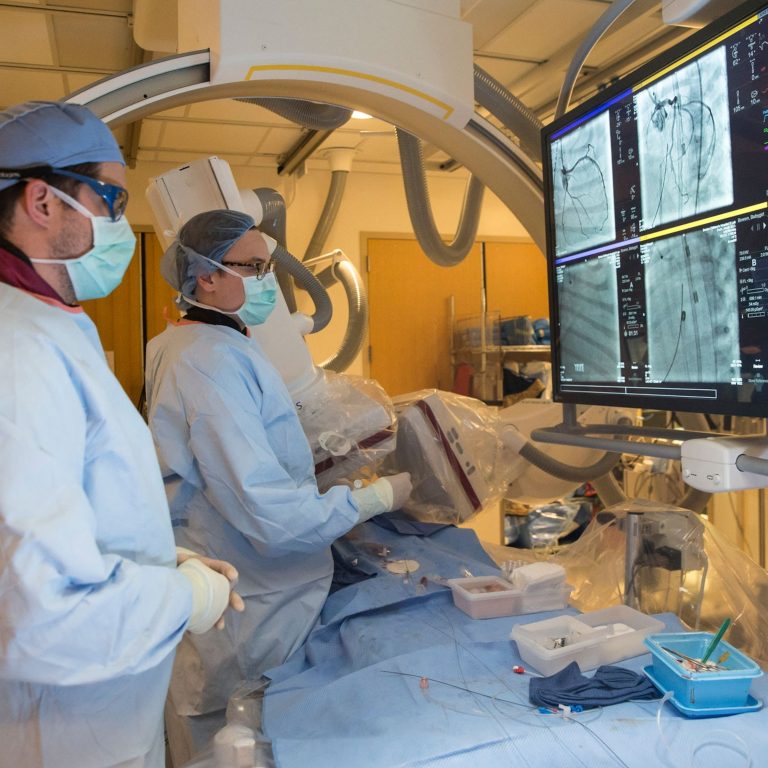Best IBS Treatment in Bangladesh with Natural Medicine 2023
The best ibs treatment in Bangladesh involves a combination of dietary changes, stress management, and medication. This holistic approach addresses the underlying causes of ibs symptoms and provides relief for those suffering from this condition.
Ibs, or irritable bowel syndrome, is a common digestive disorder characterized by abdominal pain, bloating, and changes in bowel habits. While there is no cure for ibs, managing symptoms effectively can greatly improve quality of life. We will explore various ibs treatment options and lifestyle modifications that can help alleviate symptoms and promote overall well-being.
From following a low fodmap diet to practicing relaxation techniques, there are several strategies available for managing ibs effectively. By implementing these strategies, individuals with ibs can experience a significant reduction in symptoms and enjoy a better quality of life.

Credit: www.amazon.com
Understanding Ibs: A Common Digestive Disorder
Ibs, or irritable bowel syndrome, is a common digestive disorder that affects millions of people worldwide. It is a chronic condition that impacts the functioning of the large intestine, causing discomfort and changes in bowel habits. To better understand ibs, let’s take a closer look at its definition, causes, and symptoms.
What Is Ibs?
- Ibs is a functional disorder, which means there are no structural abnormalities in the gut. It is often diagnosed based on the presence of typical symptoms and the absence of other underlying diseases.
- The exact cause of ibs is not yet fully understood. However, several factors can contribute to the development of this condition, including abnormal muscle contractions in the intestine, increased sensitivity to pain, changes in the gut’s microbiome, and a history of gastrointestinal infections.
- Ibs can manifest in different forms, namely ibs-d (diarrhea-predominant), ibs-c (constipation-predominant), or ibs-m (mixed). The symptoms experienced vary for each individual based on the predominant type of ibs.
Causes Of Ibs
- Abnormal muscle contractions: In ibs, the muscles of the intestine may contract more forcefully or for a more extended period, resulting in either diarrhea or constipation.
- Increased sensitivity to pain: Individuals with ibs often have an increased sensitivity to pain caused by gas or stool moving through the intestines, leading to abdominal discomfort.
- Changes in the gut microbiome: Alterations in the balance of bacteria in the gut can play a role in the development of ibs, impacting digestion and bowel movements.
- Gastrointestinal infections: A previous gastrointestinal infection, such as gastroenteritis, can trigger the onset of ibs symptoms in some people, leading to long-term digestive issues.
Symptoms Of Ibs
- Abdominal pain and cramping: The hallmark symptom of ibs is abdominal pain, which can range from mild discomfort to severe cramping. This pain often improves after a bowel movement.
- Altered bowel habits: Ibs can cause changes in bowel movements, including diarrhea, constipation, or a combination of both. These changes may be accompanied by urgency to have a bowel movement.
- Bloating and gas: Many individuals with ibs experience bloating and increased gas production, leading to abdominal distension and discomfort.
- Mucus in the stool: In some cases, people with ibs may notice the presence of mucus in their stool, which is often associated with inflammation in the intestines.
- Fatigue and mood disorders: Ibs can also be accompanied by fatigue and mood disorders such as anxiety and depression, possibly due to the distress caused by the condition.
Understanding the characteristics and symptoms of ibs is crucial for proper management and treatment. If you suspect you may have ibs, consult a healthcare professional to receive a proper diagnosis and develop an effective management plan tailored to your specific needs.
Recognizing The Signs Of Ibs
Living with irritable bowel syndrome (ibs) can be challenging, but recognizing the signs and symptoms can help you understand your condition better. Here are some key indicators to look out for when it comes to identifying ibs:
Abdominal Pain And Discomfort:
- Cramping: Experience frequent and recurring abdominal cramps, often relieved after a bowel movement.
- Stabbing pain: Feel sudden sharp pains in your abdomen that come and go.
- Generalized discomfort: Have a persistent feeling of discomfort or uneasiness in your abdominal region.
Irregular Bowel Movements:
- Diarrhea: Frequently experience loose and watery stools that may be accompanied by urgent bowel movements.
- Constipation: Struggle with infrequent bowel movements and difficulty passing stool.
- Alternating patterns: Witness a fluctuation between diarrhea and constipation, often without a clear pattern.
Bloating And Gas:
- Abdominal bloating: Notice your abdomen becoming swollen or distended, making your clothes feel tighter.
- Excessive gas: Frequently pass gas, experiencing flatulence, belching, or a feeling of trapped air.
By familiarizing yourself with the signs of ibs, you can begin to manage your symptoms more effectively. Remember, it’s crucial to consult with a healthcare professional for an accurate diagnosis and appropriate treatment plan. Don’t let ibs control your life – stay informed and take control.
Diagnosis And Medical Assessment
Seeking Professional Help
If you suspect that you may be suffering from irritable bowel syndrome (ibs), it is essential to seek professional help for an accurate diagnosis and appropriate medical assessment. While self-diagnosis is tempting, it is crucial to consult with a medical expert who can evaluate your symptoms and provide guidance on the best course of action.
Here are some key points to consider:
- Find a qualified healthcare provider: Look for a doctor or gastroenterologist who specializes in digestive disorders and has extensive experience in diagnosing and treating ibs.
- Patient history evaluation: The healthcare provider will begin by taking a detailed medical history and documenting your symptoms. Be prepared to provide information about the frequency, severity, and duration of your symptoms, as well as any triggers or patterns you may have noticed.
- Thorough physical examination: Your doctor will conduct a physical examination to assess your overall health and rule out other potential causes of your symptoms. This may include checking for abdominal tenderness or performing a rectal examination.
- Open communication: Be open and honest with your healthcare provider about your symptoms, concerns, and any lifestyle factors that may be contributing to your condition. The more information you provide, the better equipped your doctor will be to make an accurate diagnosis.
- Mental health evaluation: In some cases, ibs symptoms can be triggered or worsened by stress, anxiety, or other psychological factors. Your healthcare provider may ask about your mental health history and assess your emotional well-being as part of the diagnostic process.
- Collaboration and second opinions: If you are uncertain about your diagnosis or treatment plan, don’t hesitate to seek a second opinion from another qualified healthcare professional. Collaborating with specialists can help ensure a comprehensive evaluation and increase the chances of an accurate diagnosis.
Medical Tests For Ibs Diagnosis
While there is no specific test to definitively diagnose ibs, certain medical tests can help rule out other conditions and support the diagnosis. Here are some common tests that your healthcare provider may recommend:
- Blood tests: These tests can help rule out other conditions that may have similar symptoms to ibs, such as celiac disease, inflammatory bowel disease (ibd), or thyroid disorders.
- Stool tests: A stool sample analysis can help rule out infections, parasites, or conditions like inflammatory bowel disease (ibd) that can mimic ibs symptoms.
- Colonoscopy: This test involves inserting a flexible tube with a camera into the rectum and colon to examine the intestinal lining for abnormalities. It can help rule out conditions like colorectal cancer, crohn’s disease, or ulcerative colitis.
- Endoscopy: Similar to colonoscopy, this procedure involves inserting a flexible tube with a camera through the mouth or nose to examine the esophagus, stomach, and small intestine. It can help identify conditions like gastroesophageal reflux disease (gerd) or peptic ulcers.
- Imaging tests: Your healthcare provider may recommend imaging tests such as abdominal x-rays, ct scans, or mris to rule out structural abnormalities or other conditions that may be causing your symptoms.
Importance Of Accurate Diagnosis
Accurate diagnosis is essential for effective management and treatment of ibs. Here’s why it matters:
- Appropriate treatment plan: A precise diagnosis can help your healthcare provider develop an individualized treatment plan specifically tailored to your needs. This may include dietary changes, medication, stress management techniques, or alternative therapies.
- Relief and improved quality of life: With an accurate diagnosis, you can gain a better understanding of your condition and learn effective strategies to manage your symptoms. This can lead to improved quality of life, reduced symptom severity, and enhanced overall well-being.
- Avoid unnecessary interventions: By ruling out other conditions and confirming ibs, you can avoid unnecessary medical procedures, treatments, and medications that may have adverse side effects.
- Peace of mind: Obtaining a proper diagnosis can help alleviate anxiety and uncertainty associated with undiagnosed symptoms. It provides reassurance and empowers you to take control of your health.
Remember, seeking professional help, undergoing necessary medical tests, and obtaining an accurate diagnosis are crucial steps towards effectively managing your ibs symptoms and improving your overall well-being.
Lifestyle Changes For Managing Ibs
Living with irritable bowel syndrome (ibs) can be challenging, but there are various lifestyle changes that can help in managing its symptoms. Incorporating a healthy diet, identifying food triggers, and maintaining regular exercise are key practices to alleviate ibs discomfort.
Let’s explore each of these strategies in detail.
Incorporating A Healthy Diet
Eating a well-balanced and nutritious diet is crucial for managing ibs symptoms. Consider the following tips to incorporate a healthy diet into your daily routine:
- Increase your fiber intake: Gradually increase your fiber consumption to promote regular bowel movements and relieve constipation. Foods rich in soluble fiber, such as oats, beans, fruits, and vegetables, can help regulate digestion.
- Stay hydrated: Drink an adequate amount of water throughout the day to prevent dehydration and support bowel regularity.
- Be mindful of portion sizes: Eating large meals can trigger ibs symptoms. Opt for smaller, more frequent meals to ease digestion and reduce discomfort.
- Limit trigger foods: Certain foods may worsen ibs symptoms. Keep a food diary to identify potential triggers and consider eliminating or reducing these foods from your diet.
- Consider a low fodmap diet: Fodmaps are types of carbohydrates that can exacerbate ibs symptoms. Following a low fodmap diet, under the guidance of a healthcare professional, can help identify specific trigger foods and alleviate symptoms.
Identifying Food Triggers
Understanding your individual food triggers is essential for effectively managing ibs symptoms. Here are some steps you can take to identify foods that may worsen your condition:
- Keep a food diary: Note down what you eat and any subsequent symptoms experienced. This can help identify patterns and potential trigger foods.
- Introduce one food at a time: Gradually reintroduce foods, one at a time, to determine if any particular items cause symptoms.
- Pay attention to portion sizes: Even foods considered safe for ibs sufferers can trigger symptoms if consumed in large quantities. Monitor portion sizes and their impact on your symptoms.
- Consider professional guidance: Consulting a registered dietitian or healthcare professional who specializes in ibs can provide valuable insights and guidance during the identification process.
Maintaining Regular Exercise
Regular physical activity can play a significant role in managing ibs symptoms. Incorporate the following exercise strategies into your routine:
- Engage in aerobic exercises: Activities like walking, jogging, cycling, or swimming can improve digestion and relieve stress, helping to alleviate ibs symptoms.
- Try relaxation exercises: Activities such as yoga, tai chi, and deep breathing exercises have been shown to reduce stress, easing symptoms of ibs.
- Choose activities you enjoy: Engaging in activities you find enjoyable increases motivation to exercise regularly, improving overall well-being.
- Start slowly: If you’re new to exercise, start with low-impact activities and gradually increase intensity and duration to prevent any potential flare-ups.
By incorporating a healthy diet, identifying food triggers, and maintaining regular exercise, you can effectively manage your ibs symptoms and improve your overall well-being. Remember to consult with a healthcare professional for personalized advice and guidance in navigating your ibs journey.
Stay tuned for our upcoming article on medications and alternative therapies for managing ibs!
Alternative Therapies For Ibs Relief
Living with irritable bowel syndrome (ibs) can be challenging, but there are alternative therapies that can offer relief and improve quality of life. In addition to traditional medical treatments, alternative therapies such as stress management techniques, probiotics for gut health, and herbal remedies and supplements have been found to alleviate ibs symptoms.
Let’s explore each of these alternative options in more detail:
Stress Management Techniques:
- Meditation: Practicing mindfulness meditation can help reduce stress levels and manage ibs symptoms.
- Deep breathing exercises: Deep breathing exercises can promote relaxation and decrease the intensity of ibs symptoms.
- Yoga: Engaging in gentle yoga poses and stretches can improve digestion and reduce stress.
- Progressive muscle relaxation: This technique involves tensing and relaxing different muscle groups to promote relaxation and relieve ibs symptoms.
Probiotics For Gut Health:
- Probiotic supplements: Taking probiotic supplements can promote the growth of good bacteria in the gut and relieve ibs symptoms.
- Fermented foods: Incorporating fermented foods like yogurt, kefir, and sauerkraut into your diet can help improve gut health and alleviate ibs symptoms.
- Prebiotics: Consuming prebiotic-rich foods such as garlic, onions, and bananas can provide nourishment for the beneficial bacteria in the gut.
Herbal Remedies And Supplements:
- Peppermint oil: Peppermint oil capsules have been shown to relax the muscles of the gastrointestinal tract, reducing ibs symptoms.
- Aloe vera: Aloe vera juice or gel can help soothe inflammation in the digestive system and provide relief from ibs symptoms.
- Chamomile: Drinking chamomile tea may help alleviate abdominal pain and cramping associated with ibs.
- Turmeric: The anti-inflammatory properties of turmeric can help improve gut health and reduce ibs symptoms.
Remember, alternative therapies may not work the same for everyone, so it’s important to consult with a healthcare professional before trying any new treatments. Combining these alternative therapies with a healthy lifestyle, including a balanced diet and regular exercise, can significantly improve ibs symptoms and overall well-being.
Medications And Medical Treatments
Living with irritable bowel syndrome (ibs) can be quite challenging, but there are various medications and medical treatments available that can help manage its symptoms. Whether you’re dealing with abdominal pain, diarrhea, or constipation, finding the right treatment plan can make a significant difference in your quality of life.
In this section, we will explore some of the most effective medications and medical treatments for ibs.
Antispasmodic Medications
Antispasmodic medications are commonly prescribed to relieve the abdominal pain and cramping associated with ibs. These medications work by relaxing the muscles in the gastrointestinal tract, reducing the severity and frequency of spasms. Here are a few key points about antispasmodic medications:
- Antispasmodics can help alleviate abdominal pain and cramping: These medications work by targeting the muscles in the intestines, reducing their hyperactivity and providing relief from pain and discomfort.
- Commonly prescribed antispasmodics include: Dicyclomine (bentyl), hyoscyamine (levsin), and mebeverine (colofac) are frequently used to manage ibs symptoms.
- Potential side effects: Like any medication, antispasmodics can have side effects. These may include dry mouth, blurred vision, and constipation. It is essential to discuss potential side effects with your healthcare provider.
Fiber Supplements For Ibs-C
For individuals with constipation-predominant ibs (ibs-c), fiber supplements can be incredibly beneficial. They work by adding bulk to the stool, making it easier to pass through the digestive system. Here’s what you need to know about fiber supplements for ibs-c:
- Fiber supplements can promote regular bowel movements: Soluble and insoluble fiber supplements, such as psyllium husk, wheat bran, and methylcellulose, can help regulate bowel movements and alleviate constipation.
- Increased fiber intake should be gradual: It’s important to start with low doses of fiber supplements and gradually increase intake to avoid bloating or gas.
- Adequate fluid intake is crucial: It’s essential to drink enough water when taking fiber supplements to prevent them from causing further constipation.
Managing Diarrhea With Antidiarrheal Drugs
For individuals with diarrhea-predominant ibs (ibs-d), antidiarrheal drugs can be a valuable tool in managing their symptoms. Here are some key points to know about using antidiarrheal drugs for ibs-d:
- Antidiarrheal drugs can help control bowel movements: Medications such as loperamide (imodium) and diphenoxylate/atropine (lomotil) can slow down bowel movements, reducing the frequency and urgency of diarrhea.
- These medications provide short-term relief: Antidiarrheal drugs are typically used on an as-needed basis to manage acute episodes of diarrhea rather than as a long-term solution.
- Consult your healthcare provider for appropriate usage: It’s crucial to consult a healthcare provider before starting any antidiarrheal medication to ensure it is safe and suitable for your specific situation.
Remember, it’s essential to consult with your healthcare provider before starting any new medication or treatment for ibs. They can evaluate your symptoms, provide a proper diagnosis, and guide you in selecting the most effective treatment option for your individual needs.
The Role Of Gut Health In Ibs Treatment
Gut-Brain Axis And Ibs Connection
The gut-brain axis plays a crucial role in the management of irritable bowel syndrome (ibs). This bidirectional communication network between the brain and the gut is responsible for regulating various bodily functions. When it comes to ibs treatment, understanding the connection between the gut and the brain is essential.
Here’s a closer look at the gut-brain axis and its relevance to ibs:
- The gut-brain axis: This intricate system comprises the central nervous system (cns), enteric nervous system (ens), and the connection between them. It allows constant communication between the brain and the gut, influencing digestion, immune response, and overall well-being.
- Dysregulation in ibs: Research suggests that individuals with ibs experience abnormalities in gut-brain axis signaling. Disturbances in this delicate system can lead to symptoms such as abdominal pain, bloating, and altered bowel habits.
- Stress and ibs: Stress is known to exacerbate ibs symptoms, which can be attributed to the gut-brain axis. Stress signals from the brain can trigger changes in gut motility, sensitivity, and secretion, contributing to ibs symptoms.
- Treatment approaches: With a better understanding of the gut-brain axis, holistic treatment approaches focusing on both the gut and the brain are gaining recognition. Therapies such as cognitive behavioral therapy (cbt), relaxation techniques, and gut-directed hypnotherapy aim to modulate the gut-brain axis, alleviating ibs symptoms.
Importance Of A Balanced Microbiome
Maintaining a balanced microbiome is crucial for effectively managing ibs symptoms. The microbiome refers to the vast community of microorganisms residing in our gut. Here’s why a balanced microbiome is essential for ibs treatment:
- Gut microbial diversity: A diverse gut microbiome is associated with better overall health. In individuals with ibs, studies have shown a decreased abundance of beneficial bacteria and an increase in potentially harmful bacteria, leading to gut dysbiosis.
- Impact on gut health: The gut microbiome plays a vital role in maintaining gut health, regulating digestion, immune function, and the integrity of the gut lining. An imbalance in the microbiome can contribute to intestinal inflammation and increased gut permeability, exacerbating ibs symptoms.
- Probiotics and prebiotics: Probiotics are live beneficial bacteria that can help restore gut microbial balance. Prebiotics, on the other hand, act as fuel for the growth of beneficial bacteria. Including probiotic-rich foods and prebiotic fibers in the diet can aid in improving gut health and reducing ibs symptoms.
- Personalized approaches: Each individual may have a unique gut microbiome composition. Personalized interventions, such as microbiome sequencing and targeted probiotic supplementation, are being explored to optimize ibs treatment outcomes based on an individual’s specific microbiome profile.
Proactive Measures For Gut Health Maintenance
Apart from specific treatment interventions, adopting proactive measures to maintain gut health can aid in managing ibs symptoms effectively. Here are a few simple strategies:
- Dietary modifications: Following a low fodmap (fermentable oligosaccharides, disaccharides, monosaccharides, and polyols) diet can help alleviate ibs symptoms by reducing the intake of certain types of carbohydrates that can trigger gut symptoms. Additionally, incorporating fiber-rich foods and consuming adequate water can promote regular bowel movements.
- Stress management: As stress can trigger or worsen ibs symptoms, adopting stress management techniques like mindfulness meditation, yoga, or regular physical exercise can help alleviate ibs symptoms and improve overall well-being.
- Adequate sleep: Getting enough sleep is essential for maintaining a healthy gut. Poor sleep patterns have been linked to gut dysbiosis and increased inflammation, which can exacerbate ibs symptoms. Prioritizing quality sleep can contribute to better gut health and symptom management.
- Hydration: Staying hydrated is vital for supporting proper digestion, maintaining bowel regularity, and ensuring optimal gut function. Drinking enough water throughout the day is a simple yet effective way to promote gut health.
- Regular physical activity: Engaging in regular physical activity stimulates the gut, promotes healthy gut motility, and aids in maintaining a balanced microbiome. Incorporating moderate-intensity exercises into your routine can improve ibs symptoms and overall gut health.
Understanding the gut-brain axis, maintaining a balanced microbiome, and adopting proactive measures for gut health maintenance are crucial components of an effective ibs treatment plan. By addressing these aspects, individuals with ibs can experience improved symptom management and overall quality of life.
Natural Dietary Approaches For Ibs Relief
Living with irritable bowel syndrome (ibs) can be challenging, but there are natural dietary approaches that can provide relief. By making certain changes to your diet, you can effectively manage the symptoms of ibs and improve your overall well-being. In this section, we will explore three popular dietary approaches for ibs relief: the low-fodmap diet, the gluten-free diet, and the elimination diet.
Let’s take a closer look at each of these approaches and how they can help alleviate the discomfort caused by ibs.
Low-Fodmap Diet: Understanding The Basics
- The low-fodmap diet is a carefully designed eating plan that eliminates certain types of carbohydrates known as fodmaps, which can trigger ibs symptoms.
- Fodmaps are found in a variety of foods, including certain fruits, vegetables, dairy products, and grains.
- By following a low-fodmap diet, you can reduce the amount of gas, bloating, and abdominal pain experienced with ibs.
- This diet involves avoiding high fodmap foods for a period of time and then gradually reintroducing them to identify which specific fodmaps may be triggering your symptoms.
- Consulting with a registered dietitian who specializes in the low-fodmap diet is essential to ensure that you are following the diet appropriately and getting adequate nutrition.
Gluten-Free Diet For Ibs And Gluten Sensitivity
- For individuals with ibs who also have gluten sensitivity or celiac disease, following a gluten-free diet can provide significant relief.
- Gluten is a protein found in wheat, barley, and rye, and it can trigger digestive symptoms in certain individuals, including those with ibs.
- By eliminating gluten-containing foods from your diet, such as bread, pasta, and baked goods, you can reduce inflammation and alleviate uncomfortable symptoms.
- It’s important to note that not everyone with ibs needs to follow a gluten-free diet, and this dietary approach should only be considered if you have been diagnosed with gluten sensitivity or celiac disease.
Elimination Diet For Identifying Triggers
- The elimination diet is a systematic approach to identify triggers that may be causing or exacerbating your ibs symptoms.
- This diet involves temporarily removing common trigger foods from your diet, such as dairy, eggs, soy, and certain high fodmap foods.
- After a period of elimination, you gradually reintroduce the eliminated foods one at a time to determine if they have any adverse effects on your symptoms.
- Keeping a food diary during this process can be helpful in identifying patterns and pinpointing specific trigger foods.
- Working with a healthcare professional or registered dietitian during the elimination phase can provide guidance and support to ensure you are following the diet safely and effectively.
By adopting a natural dietary approach for ibs relief, such as the low-fodmap diet, the gluten-free diet, or the elimination diet, you can regain control over your digestive health. Remember to consult with a healthcare professional or registered dietitian to ensure that you are following these diets correctly and receiving the necessary nutrients for optimal well-being.
Take charge of your digestive health today and enjoy a more comfortable and fulfilling life.
Holistic Approaches To Ibs Management
Living with irritable bowel syndrome (ibs) can be challenging, but there are holistic approaches available that can help manage its symptoms. Instead of relying solely on medication, many individuals with ibs have found relief through alternative therapies. In this section, we will explore three holistic approaches to ibs management: acupuncture for symptom relief, mindfulness and relaxation techniques, and hypnotherapy for ibs symptom control.
Acupuncture For Symptom Relief
Acupuncture is an ancient chinese healing technique that involves the insertion of thin needles into specific points on the body. It works by stimulating the nervous system and promoting the release of endorphins, the body’s natural painkillers. Here are some key benefits of acupuncture for ibs symptom relief:
- Reduces pain and discomfort: Acupuncture has been shown to alleviate abdominal pain and cramping, which are common symptoms of ibs.
- Improves digestion: By regulating the gastrointestinal system, acupuncture can help improve digestion and relieve bloating, gas, and constipation.
- Relieves stress and anxiety: Ibs symptoms are often triggered or exacerbated by stress and anxiety. Acupuncture can help calm the mind, reduce stress levels, and promote relaxation.
Mindfulness And Relaxation Techniques
Stress management is crucial in managing ibs symptoms, and mindfulness and relaxation techniques can be effective tools in achieving this. Here are some ways these techniques can benefit individuals with ibs:
- Relaxation exercises: Deep breathing exercises, progressive muscle relaxation, and guided imagery can help reduce tension in the body, promote relaxation, and alleviate ibs symptoms.
- Mindful eating: Paying attention to the eating experience, savoring each bite, and chewing slowly can improve digestion and reduce gastrointestinal distress.
- Stress reduction: Practicing meditation, yoga, or tai chi can help reduce stress levels, which in turn can alleviate ibs symptoms.
Hypnotherapy For Ibs Symptom Control
Hypnotherapy is a therapeutic technique that uses guided relaxation, focused attention, and suggestive imagery to create a state of heightened awareness and suggestibility. Here’s how hypnotherapy can be beneficial for ibs symptom control:
- Alleviating abdominal pain: Hypnotherapy has been found to reduce the intensity and frequency of abdominal pain in individuals with ibs.
- Reducing bowel disturbances: Through hypnosis, individuals can learn to regulate their bowel movements and reduce the frequency of diarrhea or constipation.
- Managing stress and anxiety: Hypnotherapy can help individuals identify and address the underlying stress and anxiety that contribute to ibs symptoms, leading to better symptom control.
By exploring these holistic approaches to ibs management, individuals can find additional ways to alleviate their symptoms and improve their overall well-being. Incorporating acupuncture, mindfulness and relaxation techniques, and hypnotherapy into a comprehensive treatment plan may provide the relief that many seek in their journey with ibs.
Frequently Asked Questions For Best Ibs Treatment in Bangladesh
What Are The Best Treatment Options For Ibs?
The best treatment options for ibs include dietary changes, stress management, and medications. Following a low fodmap diet, practicing relaxation techniques, and taking prescribed medications can help alleviate symptoms and improve overall quality of life.
Can Natural Remedies Help With Ibs?
Natural remedies like peppermint oil, probiotics, and herbal teas can provide relief for ibs symptoms. Peppermint oil helps relax the muscles of the gastrointestinal tract, probiotics restore healthy gut bacteria, and herbal teas like chamomile or ginger can soothe digestion.
Is Exercise Beneficial For Ibs?
Yes, exercise can be beneficial for managing ibs symptoms. Physical activity helps reduce stress and promotes healthy digestion. Engaging in regular exercise, such as walking, yoga, or swimming, can improve gut motility and overall well-being for individuals with ibs.
Conclusion
To effectively manage ibs symptoms, it is crucial to explore various treatment options. Understanding the underlying causes and triggers of ibs can help tailor a personalized treatment plan that targets specific symptoms. This may involve making dietary adjustments, incorporating stress-reduction techniques, and exploring medication options.
Additionally, natural remedies like probiotics and herbal supplements have shown promise in alleviating ibs symptoms. It is important to consult with a healthcare professional to determine the best course of action based on individual needs. Remember, managing ibs is a journey, and finding the right treatment takes time and patience.
With the right approach and a comprehensive treatment plan, it is possible to regain control over your life and minimize the impact of ibs symptoms. Take the first step towards a healthier and more comfortable future by exploring the best ibs treatment options available in Bangladesh.

Dr. Helal, uniting science and nature for holistic health. Pioneering natural medicine for balanced living.








